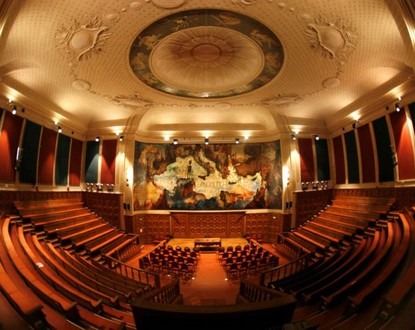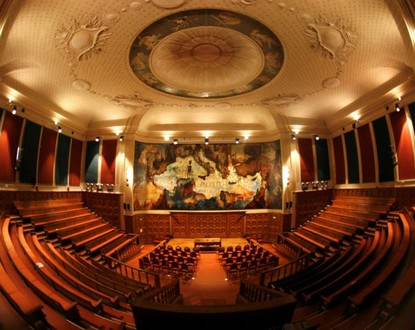Nascetur ridiculus mus… After several hours of fruitless discussions with deaf ears, here, with all due respect to the honorable assembly, is the result of a session during which a large majority of the elected officials witnessed lengthy verbal duels between the President of the Metropolis (and some of his advisors) and the opposition representatives, who, being largely in the minority with a proportion of 15 out of 130 members, struggle to express themselves without falling into… opposition for the sake of opposition.
 And all this, for a single truly important argument, even if formally divided into two: The financial account of 2013 and the initial budget for 2014, the two sides of the same coin.
And all this, for a single truly important argument, even if formally divided into two: The financial account of 2013 and the initial budget for 2014, the two sides of the same coin.
And yet, the agenda could have been expedited with greater celerity if we had stayed within the technical framework of the debate without falling into “political” controversy.
What is political about the deliberation concerning the administrative account of 2013 but the President of the Metropolis’ desire to showcase it as an example of good and beautiful management by highlighting public investment as a recipe to support demand and hence the local economic activity (The ABC of Keynes’ theory… but, do they know at the UMP that they have such an important elected official at home practicing a non-orthodox economic policy compared to the official party line, liberalism?) and the opposition’s search for some black holes (we must count three: FN, Socialists and Greens, and the Bettati list)?
Moreover, the “battle” over the debt (set at 991 million euros on December 31) clearly shows the risk of making a mistake in the analysis: The problem (if there really is one) is not the scale of the debt as claimed by the opposition (on the contrary, with current rates, we should even take advantage to further increase it), just as the capacity for debt reduction is not a certificate of good conduct either.
In fact, since this debt (whether small or large) will have to be paid sooner or later, it is the budgetary balance (primary surplus) before debt servicing which is the index that really allows us to understand both the capacity for debt and repayment, which are the criteria financial analysts (and creditors) use to determine the quality of a balance sheet and the reliability of the debtor.
But, ultimately, when you have a finance committee chairman of top quality, like Philippe Pradal (appreciated even by the opposition), why move away from the technical context to engage in uninteresting soliloquies and altercations, except for the mere pleasure of throwing a few barbed remarks at the opponents?
Regarding the initial budget for 2014 (amounting to 1,297 million euros), the music hasn’t changed tone: All that is positive comes from the action of the metropolitan majority (a policy supported in favor of employment; an assertive policy for housing; the continuation of structuring equipment for the service of residents and companies in the territory, all while maintaining solidarity with the municipalities), all difficulties stem from government policies and (the anti-European wind of public opinion obligates) European ones!
We could summarize the opposition’s position in Benoît Kandel’s statements: “In such an economic context and given that you have formally committed not to increase tax pressure throughout your mandate, how will you keep all the commitments you have made to the mayors of our Metropolis in terms of investments, without, once again, increasing our already worrying debt in even more unreasonable proportions?”
But, in some ways, Christian Estrosi had already prepared his response in a phrase taken from the speech illustrating the 2014 budget: “These difficulties are, moreover, not new and we have always faced them up until now. Our budget plan therefore includes these new governmental restrictions, and we will know how to overcome them while applying our priorities.”
Facts will confirm or not, and to what extent.



